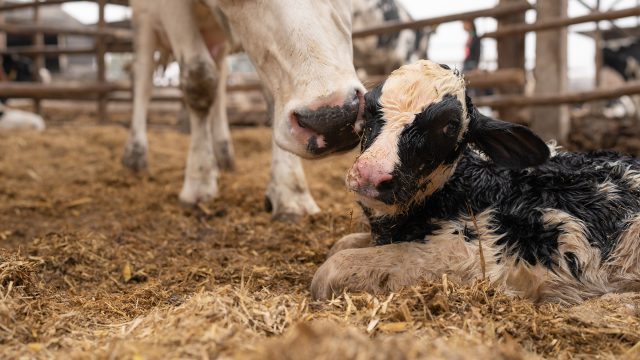
Lawsuit Filed Against Tiger Creek for Violating Endangered Species Act
The lawsuit alleges federally endangered and threatened animals such as the tigers, lions, and ring-tailed lemurs are receiving inadequate care at Tiger Creek
Contact: media@aldf.org
DALLAS — The Animal Legal Defense Fund filed a lawsuit against the National Foundation for Rescued Animals, a purported animal rescue organization doing business as Tiger Creek Animal Sanctuary, as well as its founder and former director, Brian Werner Ferris, and his daughter, Chairman and Executive Director, Emily Owen, for allegedly violating the Endangered Species Act (ESA). Known as Tiger Creek, the facility, the Animal Legal Defense Fund argues, violates the ESA’s “take” and “transfer” provisions by harming, harassing, and killing numerous animals — including nine lions and tigers who have died there since 2018 — and by transferring members of endangered and threatened species across state lines without the necessary permits.
In the lawsuit, the Animal Legal Defense Fund alleges that extensive photographic and video evidence, first-hand observations, and government analyses — including an official warning issued by the U.S. Department of Agriculture (USDA) — indicate that animals at Tiger Creek believed to be protected by the ESA are mentally and physically suffering.
“The USDA has allowed Tiger Creek to continue to operate even though its inspectors have recognized the facility fails to meet minimum care requirements for animals,” says Animal Legal Defense Fund Executive Director Stephen Wells. “Our lawsuit seeks justice for the big cats who have lost their lives and to ensure the animals still remaining at Tiger Creek are transferred to reputable sanctuaries.”
Instances highlighting Tiger Creek’s lack of adequate animal care at its facility are detailed in USDA inspection reports and public records, which indicate that care has been withheld or delayed. Alleged victims include a puma named Coco who was euthanized days after he began dragging his leg around his enclosure and became immobile, a tiger named Amir who stopped eating and was found dead in his cage, a tiger named Greg who was euthanized after developing a distended abdomen and rejecting food, a tiger named Nati who had a cyst the size of a quarter in her abdomen that grew over multiple weeks to the size of a dinner plate before rupturing, and a tiger named Tibor who refused to eat after being transferred to Tiger Creek, where he ultimately died after spending hours in the rain, laying in his own urine. Tiger Creek is also alleged to be keeping two ESA-protected ring-tailed lemurs, highly social animals who typically live in groups, isolated in separate enclosures with insufficient opportunities for enrichment and social interaction.
The complaint also accuses Tiger Creek of violating the “transfer” provision of the ESA by failing to obtain applicable permits from the Secretary of Interior for its acquisition and transfer of endangered animals. For instance, in the past three years alone, Tiger Creek has allegedly acquired at least six protected animals out-of-state and transported them in interstate commerce. Tiger Creek is alleged to have acquired tigers Pomfret, Singer, and Nati in December 2018, and Ava, Elouise, and Rosie in July 2019, each from Doc Antle of Netflix’s Tiger King in Myrtle Beach, South Carolina.
The ESA protects any members of species defined as “endangered” or “threatened” from myriad activities that cause them injury, death, or other types of harm. In 2018, the U.S. Court of Appeals for the Eighth Circuit unanimously affirmed the lower court’s decision applying the ESA to protect endangered animals in captivity — setting precedent for future challenges. This precedent setting case was filed by the Animal Legal Defense Fund in 2014 against Cricket Hollow Zoo, a roadside menagerie in Manchester, Iowa, related to inhumane treatment of Siberian tigers and lemurs.
Sign Up!
Join the Animal Legal Defense Fund's email list to stay up to date on lawsuits, legislation, and regulations affecting animals.
Focus Area
How We Work
Related
-
Tentative Settlement Reached in Texas Endangered Species Act Lawsuit
The Animal Legal Defense Fund and National Foundation for Rescued Animals, an animal exhibitor doing business as Tiger Creek Animal Sanctuary, have tentatively reached a settlement, pending the dismissal of the Endangered Species Act lawsuit filed in March 2022.February 28, 2024 Press Release -
Legal Petition Urges USDA to Adopt Comprehensive Regulatory Framework for Wildlife Services Program
The Animal Legal Defense Fund, as part of a coalition, submitted a petition for rulemaking to the USDA Animal and Plant Health Inspection Service urging Wildlife Services to phase out lethal control of wild animals, including prohibiting specific practices such as neck snares, M-44 cyanide bombs, lead bullets, and more.November 21, 2023 Press Release -
USDA Restricting Access to Plant-Based Milks in National School Lunch Program is Dietary Racism
Proposed rule would maintain an unnecessarily complicated and confusing process for children to get access to plant-based milkMay 11, 2023 Press Release




